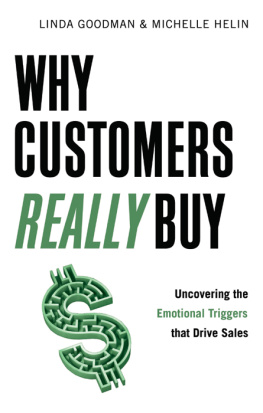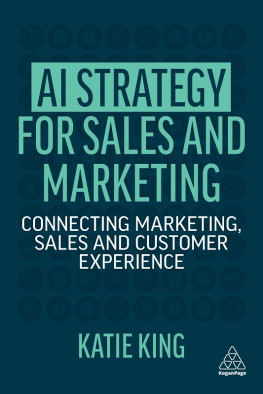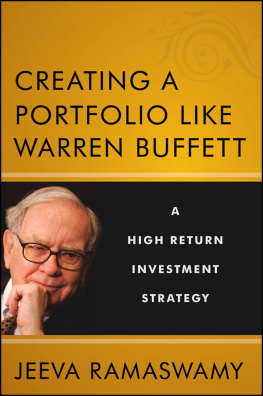Turner-Wilson - WOOF: Why Ordinary Organizations Fail
Here you can read online Turner-Wilson - WOOF: Why Ordinary Organizations Fail full text of the book (entire story) in english for free. Download pdf and epub, get meaning, cover and reviews about this ebook. year: 2016, publisher: Nautilus, genre: Business. Description of the work, (preface) as well as reviews are available. Best literature library LitArk.com created for fans of good reading and offers a wide selection of genres:
Romance novel
Science fiction
Adventure
Detective
Science
History
Home and family
Prose
Art
Politics
Computer
Non-fiction
Religion
Business
Children
Humor
Choose a favorite category and find really read worthwhile books. Enjoy immersion in the world of imagination, feel the emotions of the characters or learn something new for yourself, make an fascinating discovery.
- Book:WOOF: Why Ordinary Organizations Fail
- Author:
- Publisher:Nautilus
- Genre:
- Year:2016
- Rating:4 / 5
- Favourites:Add to favourites
- Your mark:
- 80
- 1
- 2
- 3
- 4
- 5
WOOF: Why Ordinary Organizations Fail: summary, description and annotation
We offer to read an annotation, description, summary or preface (depends on what the author of the book "WOOF: Why Ordinary Organizations Fail" wrote himself). If you haven't found the necessary information about the book — write in the comments, we will try to find it.
WOOF: Why Ordinary Organizations Fail — read online for free the complete book (whole text) full work
Below is the text of the book, divided by pages. System saving the place of the last page read, allows you to conveniently read the book "WOOF: Why Ordinary Organizations Fail" online for free, without having to search again every time where you left off. Put a bookmark, and you can go to the page where you finished reading at any time.
Font size:
Interval:
Bookmark:

WOOF - WHY ORDINARY ORGANIZATIONS FAIL
My sincere gratitude to Donna Collier, Michelle Cunningham, Carl Cottam, Ashley McHugh, and Tammie Ritchey for their contributions to this book. Without you, WOOF would still be but an idea.
A special thanks to Julie Lunn my partner in crime and RedRover co-founder who had the courage to take the leap with me. Its been a doggone incredible ride from start-up to where we are today. I cant imagine taking this journey with anyone else, and your friendship has meant the world.
And thank you to the entire RedRover team that serves as daily inspiration to our clients and to me personally.
Photography by Steve Jones www.stevejonesphoto.com.
ISBN #978193694671-6
EPUB ISBN: 978-1-936946-75-4
First Edition
Copyright 2016 by The Nautilus Publishing Company
426 South Lamar Blvd., Suite 16
Oxford, MS 38655, Tel: 662-513-0159
www.nautiluspublishing.com
All rights reserved. No part of this book may be reproduced, scanned or distributed in printed or electronic form without written permission from the author.
PRINTED IN CANADA
through a partnership with Friesnes Printing, Louisville, Kentucky
WOOF is dedicated to my father, the late Chuck Turner, who taught us the value of relationships and the true responsibility of a sales professional; to my inspirational mother, Rita Turner, who always let us know anything was possible; and to my ever-supportive husband, Mike Wilson, for his humor and endless patience through all of the late nights and weekends necessary to build a business.
ESTABLISH A STRATEGY
EXECUTE YOUR MARKETING STRATEGY
WOOF is an accumulation of the sales and marketing lessons Ive learned throughout my life, starting at an age earlier than most. I was raised by a salesman for a father, and that upbringing gave me a unique perspective on the world. It helped me understand that relationships and integrity are at the core of all business. It gave me an appreciation for the responsibility that a true sales professional carries listening, understanding, empathizing and partnering. In my view, there are few professions as challenging or noble.
My first attempt at applying the skills which I saw my father demonstrate in his work and life came when I was just seven years old. I planned, promoted and executed an event a dog show, in fact. The show was widely attended by children throughout the neighborhood, received rave reviews, and even earned a profit. It was, on the surface, a silly childhood game. But it began to shape who I was meant to be.
Sales degrees werent common in the late eighties when I entered college, so marketing was my path. I first attended the University of Arkansas and then moved on to the University of Nebraska to complete my degree. Shortly after college, I ventured into the corporate world, ultimately leading marketing, sales and communications teams for top national and international companies including Hampton Hotels, TCBY Enterprises and First Horizon National Corporation. While my education and much of my early training were in marketing, Ive always looked at marketing through a sales lens.
My corporate roles afforded me the opportunity to partner with some of the most well-known advertising agencies in the world. Through those experiences, some outstanding and others less than ideal, I could visualize the type of agency I would someday build one where sales and marketing strategies align; plans are grounded in comprehensive, meaningful research; teams begin with the end in mind, keenly focused on tangible metrics; and campaigns are launched to achieve bottom-line impact, not just to add to a library of colorful or clever creative.
This vision is the foundation of RedRover Sales & Marketing Strategy, a company I co-founded with Julie Lunn ten years ago in Memphis, Tennessee.
For more than five years, Ive had the honor of writing a syndicated column, called Guerrilla Sales & Marketing, for daily and weekly papers across the Southeast. WOOF is a collection of the most transformative of those columns. My hope is for the book to help you achieve your organizations transformation.

YOURE NOT STEVE JOBS
SEVENTY PERCENT of startup businesses fail within the first 10 years, according to a 2013 study conducted by Bradley University and the University of Tennessee. Its a devastating reality, especially since most of those startups are small businesses, which generate more than half of domestic sales in the U.S.
More often than not, these failures are caused by a lack of solid management abilities. Ironically, the very qualities that inspire most entrepreneurs to take a risk and start a new business can work against them when it comes to actually leading that business day-to-day, because there are inherent differences between entrepreneurs and leaders.
Entrepreneurs are visionaries and innovators, but they may tire when it comes to execution. Entrepreneurs tend to favor the newest strategy instead of a tried-and-true strategy, since they are more comfortable with risk. While they dont enjoy executing day-to-day tasks, they may struggle in effectively delegating those responsibilities to others as well.
Leaders consistently execute company strategy. They appreciate both the need to hire seasoned managers and the benefits of empowering them to make decisions autonomously. Often, however, leaders lack the entrepreneurial trait of being able to inspire a workforce to drive toward a greater vision, and they may struggle to maintain a culture of innovation.
An entrepreneurial leader is a rare bird. These are the people who inspire us with both their vision and ability to see it through, like Steve Jobs, Sam Walton, Henry Ford and Bill Gates. However, it typically takes a strong, balanced partnership between an entrepreneur and a leader for a startup business to find success.
If a management imbalance occurs, a sales and marketing strategy is not likely to produce a strong return on your investment. If an entrepreneur is solely at the helm, seemingly continuous changes in sales and marketing direction can result in team confusion and spinning of wheels without solid results. When a leader is alone in the drivers seat, the business may become stagnant, focused too much on the strategies of the past without an eye to future innovation. Neither environment is suitable for sustainable growth.
Too many businesses fail simply due to a lack of balance between entrepreneurial innovation and leadership. To ensure your business thrives, recognize your natural strengths and truly empower trusted business partners to balance out your management team.
Combining entrepreneurial qualities with steady leadership is the key to long-term success.
A RUT AND A GRAVE
THROUGH THE YEARS, Ive come to embrace the realization that I am an agent of change for companies dissatisfied with their current sales and marketing outcomes. Once, after I proposed some significant strategy changes to an area CEO, I was startled when he told me, with perfect clarity, We cant expect a different outcome if we arent willing to change what were doing.
Font size:
Interval:
Bookmark:
Similar books «WOOF: Why Ordinary Organizations Fail»
Look at similar books to WOOF: Why Ordinary Organizations Fail. We have selected literature similar in name and meaning in the hope of providing readers with more options to find new, interesting, not yet read works.
Discussion, reviews of the book WOOF: Why Ordinary Organizations Fail and just readers' own opinions. Leave your comments, write what you think about the work, its meaning or the main characters. Specify what exactly you liked and what you didn't like, and why you think so.






